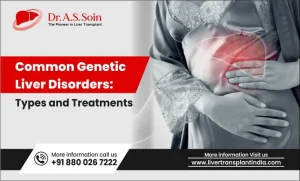The liver is often overlooked despite playing a central role in keeping us healthy—quietly working behind the scenes to filter toxins, aid digestion, and support metabolism. But what if this essential organ becomes the target of our own immune system? That’s precisely what happens in autoimmune hepatitis (AIH)—a chronic, often misunderstood liver condition.
While most people are familiar with liver damage linked to alcohol, obesity, or viral infections like hepatitis B and C, autoimmune hepatitis is a distinct and more complex entity. If left unmanaged, it can quietly progress, leading to complications such as cirrhosis or even liver failure.
Early recognition and treatment are crucial. In this article, we’ll explore what sets AIH apart, how it manifests, and what options exist for those diagnosed with it.
Table of Contents
ToggleWhat Is Autoimmune Hepatitis?
Autoimmune hepatitis occurs when the immune system—designed to defend us against infections—mistakenly turns against the liver, causing chronic inflammation. Over time, this persistent attack can scar liver tissue, eventually resulting in fibrosis, cirrhosis, or liver failure.
This condition affects women far more often than men, with up to 90% of diagnosed cases being female. Though most commonly identified in individuals between 50 and 60 years old, AIH can appear at any age—even in children.
What makes AIH particularly tricky is that its early signs are often subtle, meaning that many people remain unaware until the disease has already caused significant liver damage.
What Makes Autoimmune Hepatitis Different?
Many liver diseases share overlapping symptoms—fatigue, jaundice, and abdominal discomfort—but autoimmune hepatitis has unique characteristics:
- It’s Not Infectious: Unlike hepatitis B or C, AIH isn’t caused by a virus, nor is it contagious.
- Driven by the Immune System: The underlying issue is immune dysregulation, not alcohol, fat, or infection.
- Primarily Affects Women: While other liver diseases affect both genders fairly equally, AIH predominantly affects women.
- Gradual Onset: Symptoms often develop slowly and may come and go, unlike the sudden onset seen in some viral hepatitis cases.
- Lifelong Condition: AIH usually requires ongoing treatment and monitoring.
- Requires Immunosuppressive Therapy: Unlike viral hepatitis, which is treated with antivirals, AIH is managed using medications that suppress immune activity.
- Commonly Coexists with Other Autoimmune Disorders: People with AIH may also have conditions like thyroid disease, rheumatoid arthritis, or type 1 diabetes.
Why Does It Happen?
The precise cause remains unclear, but AIH is believed to arise from a mix of genetic predisposition and environmental triggers. Some known risk factors include:
- Family History: A genetic link exists, especially among those with other autoimmune conditions.
- Past Infections: Certain viral infections may trigger an abnormal immune reaction.
- Environmental Exposures: Some medications, toxins, or infections could initiate the disease in susceptible individuals.
- Hormonal Factors: The high prevalence in women suggests that hormonal influences like estrogen may play a role.
Recognizing the Symptoms
AIH can vary widely in how it presents—from almost no symptoms to significant signs of liver dysfunction.
Common Symptoms:
- Persistent fatigue
- Yellowing of the skin or eyes (jaundice)
- Upper abdominal discomfort
- Poor appetite and unintentional weight loss
- Joint pain
- Nausea or vomiting
- Dark-colored urine, pale stools
- Skin itchiness
Advanced Symptoms:
- Fluid retention (swelling in the legs or abdomen)
- Confusion or memory problems (hepatic encephalopathy)
- Easy bruising or bleeding
AIH can also enter periods of remission where symptoms improve, only to flare up again later. Regular follow-up is key to catching these flare-ups early.
How Is It Diagnosed?
Diagnosing AIH isn’t always straightforward, as its symptoms can mimic other liver conditions. A combination of the following is typically used:
- Blood Tests: Elevated liver enzymes, presence of specific autoantibodies, and high immunoglobulin G (IgG) levels.
- Imaging: While ultrasounds, CT scans, or MRIs can’t confirm AIH, they help rule out other causes and assess liver structure.
- Liver Biopsy: Often the gold standard—this test provides a clear picture of inflammation and fibrosis.
How Is It Treated?
While AIH can be serious, it’s treatable—especially when caught early.
1. Medications
Initial treatment usually begins with corticosteroids like prednisone to control inflammation. Over time, immunosuppressants (such as azathioprine) may be added to maintain remission and reduce steroid use.
Potential Side Effects may include weight gain, elevated blood pressure, or bone thinning. However, doctors closely monitor patients and adjust treatment as needed.
2. Ongoing Monitoring
- Regular liver function tests
- Monitoring medication side effects
- Bone density scans or other supportive evaluations if needed
When Is Liver Transplantation Considered?
In cases where liver damage becomes irreversible—due to advanced cirrhosis or acute liver failure—liver transplantation may be necessary.
This is generally considered when medications are no longer effective. While it’s a major procedure, many patients experience excellent long-term outcomes. However, it’s worth noting that AIH can occasionally recur in the new liver.
Living Well with Autoimmune Hepatitis
A diagnosis of AIH isn’t a life sentence. With the right treatment and lifestyle choices, most people lead full, active lives.
Helpful Tips:
- Always take prescribed medications consistently.
- Follow a nutritious, liver-friendly diet: emphasize fruits, vegetables, whole grains, and lean proteins.
- Avoid alcohol and processed or high-fat foods.
- Stay well-hydrated.
- Exercise regularly to maintain a healthy weight.
- Get vaccinated against hepatitis A and B.
- Manage stress through relaxation techniques or counseling.
- Schedule regular follow-ups with your doctor.
Final Thoughts
Autoimmune hepatitis may not be as well-known as other liver diseases, but that doesn’t make it any less important. By understanding its nature, recognizing early signs, and embracing a proactive approach to treatment, patients can take control of their health.
If you or a loved one is facing unexplained liver symptoms, don’t delay. Reach out to a liver specialist for timely diagnosis and expert care. Early action can make all the difference.








